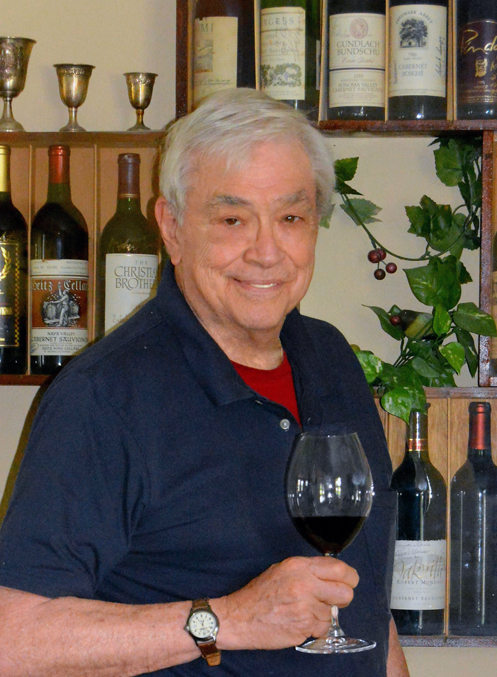As a nation, we have allotted February as the month that we remember and honor all of our past presidents. Since our field of interest is wine and spirits we decided to take a look at our presidents and some of the founders of our country and their connection with alcohol.
We know that you have heard of the Boston Tea Party, but have you ever heard of the Madeira Wine Party? The Madeira Wine Party, which occurred several years before the Boston Tea Party, was also a demonstration against British domination over the colonies. On that occasion, it was against the rationing of Madeira, the favorite wine of the colonists. The sloop “Liberty” had tried to land at Boston Harbor with a cargo of Madeira wines consigned to John Hancock, the first signer of our Declaration of Independence. The, British seized the shipment which set the colonists into action. A conflict took place, and, as the story goes, Hancock won out and finally received his wine.
        One of our most famous presidents, Abraham Lincoln was an alcohol abstainer; not a prohibitionist, but an abstainer, although his father had worked at a distillery. The place where “Honest Abe’s†pappy worked was called, Knob Creek, and that brand is still available today. That same Knob Creek Bourbon can give today’s Bourbon aficionados an idea of what the drinks of the mid 1800’s were like.
There is also a story told about Mr. Lincoln’s comment when he was informed that his winingest general, Ulysses S. Grant, was knocking back a few too many while on duty, or to put it simply, that he was an out and out drunk. Mr. Lincoln answered in typical Lincolnesque fashion saying “find out what brand he drinks and I will send a barrel to each of my generals.†General Grant’s brand was Old Crow and it too is still available in most package stores today.
Another interesting story is that of President Herbert Hoover who, during the height of our prohibition period, would regularly visited the Belgian Embassy to imbibe in an occasional alcoholic libation. This was perfectly honorable because the Belgian Embassy was considered foreign soil and not bound by the laws of our land. There is no doubt in our minds that Mr. Hoover must have also visited several of the other embassies such as the British, the French, and probably the Polish embassies. We doubt very much if he would have spent any time at the Russian Embassy as the Bolsheviks were not considered good company to be seen with at the time.
        When the “Father of our country†George Washington left the Presidency after two terms, he retired to his home, Mount Vernon. Unfortunately, at that time, there was no presidential retirement plan in effect, so he had to make a living somehow; that somehow wound up being the distilling of whisky. In fact, Good old George did it in a big way and eventually owned and operated the largest distillery in the newly formed United States.
The honor of being the leader of our early presidents with an interest in wine and spirits goes to Thomas Jefferson. Not only did he possess the nation’s finest collection of French wines, but he also led the country in the experimentation of trying to grow the famous vines of Europe in this country. Jefferson imported wine for his cellar in bottles rather than the more common casks. His favorite wines came from the region of Bordeaux called the Medoc. Although nothing drinkable remains of Jefferson’s collection, one brand, from one of his favorite vineyards is currently on the market; Mouton Cadet.
Jefferson’s efforts to grow fine wine grapes in the new United States failed miserably because he was unaware of the diseases and insects that prevented those vines from growing in the eastern states. Jefferson did however, accurately predict that someday, “America would make wines as good as those of France,†and his prediction most certainly came true.
 High Vacuum Engineer: Senior Technical Adviser and Feature Writer for Modern Photography Magazine (1967-1973), co-founder of Together Vineyards, an experimental vineyard in South Florida which was the southern most registered vineyard in the Continental United States. Co-Author of several books on Home Wine Making, Home Beer Making and Distillation of Spirits. Co-owner of Camera & Video Repair Institute in Sunrise Florida.
High Vacuum Engineer: Senior Technical Adviser and Feature Writer for Modern Photography Magazine (1967-1973), co-founder of Together Vineyards, an experimental vineyard in South Florida which was the southern most registered vineyard in the Continental United States. Co-Author of several books on Home Wine Making, Home Beer Making and Distillation of Spirits. Co-owner of Camera & Video Repair Institute in Sunrise Florida.